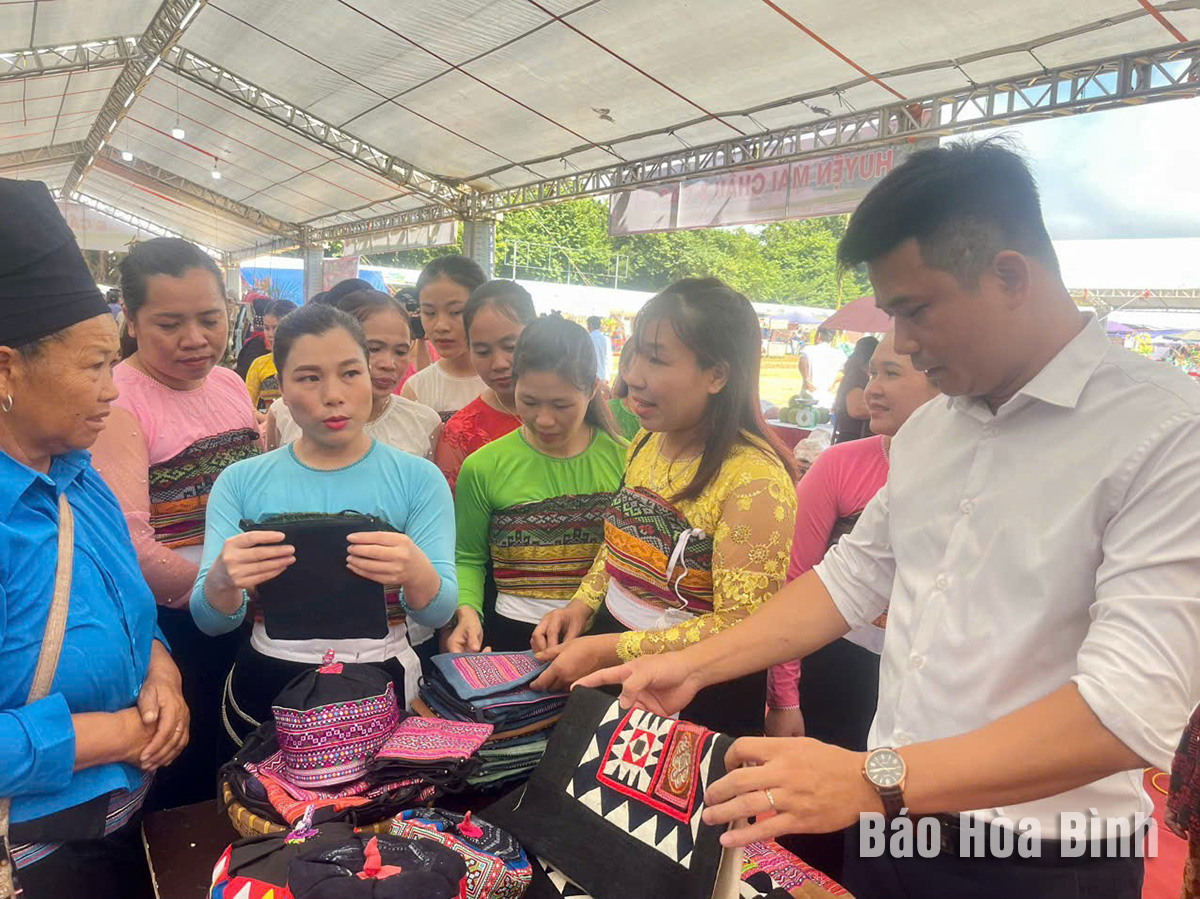
Mai Chau district, which is aiming to turn itself into a key tourism site of Hoa Binh province, has provided training courses in non-agricultural sectors for rural workers. This is a bold step to help local people shift to more suitable employment so as to improve incomes.
Trainees of
tour guide training course go on a field trip at a local market in 2023.
Ha Quynh Chi, a resident in Pom Coong village,
Mai Chau town, has joined a cooking class at the district’s centre for
vocational training and continuing education, though her household has provided
homestay service for years. After only three months, Chi is able to master
basic bartending and cooking techniques, and apply what she has learnt to
develop her family’s tourism model.
Chi is part of a larger group of rural workers
who find new ways after engaging in vocational training classes. In fact, the
courses have changed their mind, helping them see tourism as a long-term and
stable livelihood.
Ha Van Son from Nhot hamlet, Na Phon commune
said he possesses various tour guide skills, including interesting introduction
of local ethnic cultures, communication, and smooth settlement of situations,
after attending the district’s tour guide training class.
Over the past time, Mai Chau district has
arranged various courses for rural labourers, providing them with necessary
skills to develop household economy, stabilise their lives and effectively
carry out criteria to build new style rural areas.
According to Lo Van Binh, director of the
district’s centre for vocational training and continuing education, three tour
guide classes, five cooking classes and eight classes to revive the traditional
brocade weaving were organised in 2023 with financial support from the national
target programme on socio-economic development in ethnic-inhabited and
mountainous areas, the national target programme on sutainable poverty
reduction during 2021-2025, and the district’s budget.
The classes, which drew the participation of 480
people, have proved to be effective, contributing to reducing the poverty rate
to 20.79% in 2023, or 3.45% lower than the figure in 2022, he added.
Vocational training and poverty alleviation have
close relations, Binh said, highlighting that practical courses that are in
line with the society’s demand will be a key to local socio-economic growth.
More than just an information technology teacher, Bui Van Nien is an inspiring figure who has nurtured the scientific curiosity and creative spirit of students in Vietnam’s ethnic minority communities.
Da Bac is the most disadvantaged mountainous district in Hoa Binh province, with ethnic minorities accounting for about 90% of its population. Over the past years, the district has mobilised resources to implement ethnic policies to improve the quality of life of local people.
In recent years, Hoa Binh province has consistently prioritised the protection, care, and education of children, particularly those from ethnic minorities and disadvantaged backgrounds, by creating a safe, healthy, and nurturing environment for their all-round development.
The Steering Committee for Tobacco Harm Prevention and Control of Hoa Binh province, in coordination with the Tobacco Harm Prevention and Control Fund, held a ceremony on May 28 in response to the World No Tobacco Day (May 31) and the National No Tobacco Week (from May 25 to 31). The event was chaired by Nguyen Van Toan, Standing Vice Chairman of the provincial People’s Committee and head of the Steering Committee.
Since 2021, the Center for Industrial Promotion and Industrial Development Consulting (CIIDC) under the Department of Industry and Trade has been implementing a school lighting model as part of the plan for using energy efficiently and economically in Hoa Binh Province in the pẻiod of 2021 - 2025. This model not only aims to improve the learning conditions and enhance the education quality, but it also promotes the message of energy saving, energy security, environmental protection and contributes to the goals of socio-economic development.
In the 2024 - 2025 school year, the entire Hoa Binh provincial education sector includes 520 educational institutions and schools. Among them are 13 ethnic boarding schools with 153 classes and 4,487 students. Four of these schools have met national standards, reaching 30.7 percent.



